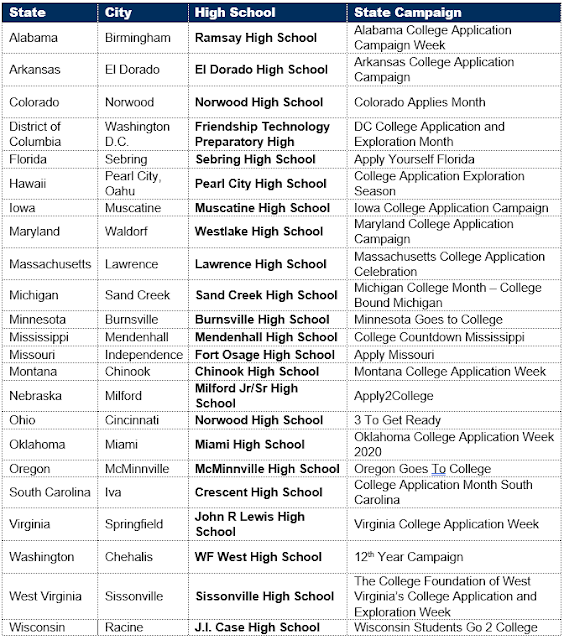Since there is no substitute for hearing directly from women who have participated in the programs, I was fortunate enough to speak with two current participants in Hunt Institute programs: Illinois Lt. Governor Juliana Stratton (Hunt-Kean Leadership Fellow, Cohort 6), and Guilford County Superintendent Sharon Contreras (Elevate NC: Higher Education, Cohort 1).
Lt. Governor Stratton
- How has participation in the HK Fellows program shaped your views on education?
- During this global pandemic, education is an area where my HK Fellow colleagues and I have learned together and broadened our views. COVID-19 has made us think critically about how we educate our next generation. As the entire country pivoted to remote learning, the digital divide in urban and rural America came to the forefront. Working on a rural postsecondary summit with The Hunt Institute, we raised up issues and discussed financial investment into broadband infrastructure. We must continue to create innovative, long-term, and sustainable pathways to ensure that every student has equitable access to technology and internet.
- How has the work we’ve done together affected you as a woman of color?
- Partnering with The Hunt Institute, I hosted a webinar to discuss the patterns, stereotypes, and systemic restraint of resources that contribute to the marginalization of Black women and girls in education. We examined issues that impact women and girls that look like me. The conversation focused on preschool expulsions, mental health stressors, and more. As a Black woman, I am extremely proud of this work.
- What, if anything, is currently missing from the equity conversation?
- Schools in our most marginalized communities (Black, brown, Indigenous, and rural) have experienced decades of disinvestment. If education is to provide opportunity, we need to work with equity in mind to dismantle problematic systems, thinking about processes and outcomes. We must also be honest about the trauma systemic racism has caused within our educational system. Black and brown children are often viewed through a harsh lens. In fact, the American Academy of Pediatrics describes racism as a detriment to the mental health of children of color.
Superintendent Sharon Contreras
- What has participation in ElevateNC meant to you?
- The evidence is clear - a postsecondary degree leads to a better quality of life in this country, especially for women, for Black and brown people, and for those living in poverty. Working with colleagues across the state on helping students achieve a postsecondary degree or credential is incredibly rewarding.
- What unique perspectives do you bring to the program as a woman of color?
- I am a beneficiary of the struggles and resilience of those who labored for equal educational access for girls and people of color in this country. My paternal grandparents came from Puerto Rico and Venezuela, and my maternal grandparents were sharecroppers in South Carolina. They all envisioned better lives for their posterity. When I approach the conversations during the sessions, I am cognizant of the fact that all children and families want the same education and opportunities that so many worked to ensure for my siblings and me.
- How are postsecondary education and equity linked?
- Disparities in student access and outcomes based on race and socio-economic status persist in education. Black, Indigenous, and people of color face the greatest challenges in educational completion, exacerbating racial wealth gaps in our state and nation. Eliminating structural and systemic barriers to attaining a college degree ultimately improves life outcomes for the most underserved students.
Why is this work so important?
Our vision is simple – “An equitable American education system through which all learners achieve their highest potential in school and life,” and yet attaining this vision is anything but. The pandemic has made one thing abundantly clear, which is the fact that educational opportunities vary widely across the country, oftentimes based on zip code or a family’s income level. Until we can erase all those factors such that every child receives the same quality education, there is much work to be done.
Where can people go to learn more and get involved?
Our website as well as our 2021-2024 Strategic Plan are great places to get educated on the issues at hand and learn about how we weave equity into all of our programming.
In terms of tangible impact readers can make at this moment, The Hunt Institute has teamed up with TNTP to write a letter to Secretary Cardona to add one million teachers of color to our schools over the next decade and help every student accelerate back to grade level. You can add your name to the letter here.
Finally, please join us for our weekly webinars to take part in the conversations.










